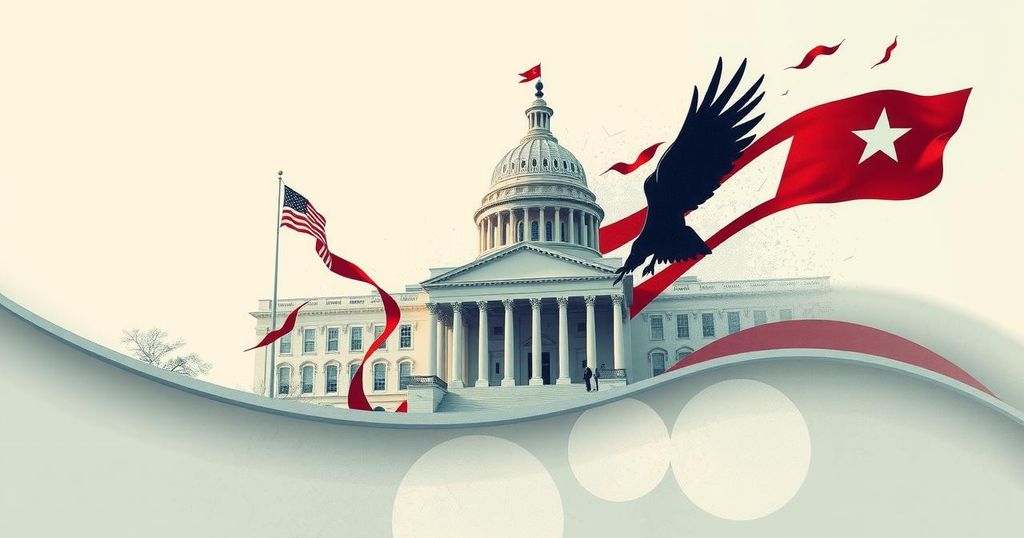Friedrich Merz and the conservative party won Germany’s election, with the far-right AfD becoming the second-largest party. The election highlighted concerns about economic stagnation and immigration issues. Merz aims to form a new government by Easter, excluding the AfD from collaboration, which has gained influence despite being shunned by other parties due to extremism allegations.
Provisional results from Germany’s latest national election indicate that the conservative party, led by Friedrich Merz, emerged victorious. The far-right party, Alternative for Germany (AfD), made significant gains, becoming the second-largest party in the Bundestag. The election was heavily influenced by concerns regarding Germany’s economic stagnation and the pressure to manage migration more effectively, particularly as Merz advocated for stricter immigration policies during the campaign.
Germany, a key player in the European Union and NATO, continues to play a pivotal role in addressing European security challenges, including its support for Ukraine amid ongoing conflicts. President Trump expressed support for the election outcome, suggesting that German citizens are seeking a change from previous policies that he deemed ineffective. Ukrainian President Zelenskyy congratulated Merz, anticipating a continued partnership between Germany and Ukraine.
Overall, the results allowed Merz’s Christian Democrats and the center-left Social Democrats to secure a majority in the national legislature, paving the way for Merz to potentially become the next chancellor. Merz aims to establish a new government by Easter, although he has ruled out including the far-right AfD in any coalition government. The AfD’s rise reflects its increasing influence, despite the reluctance of other parties to collaborate with them due to allegations of right-wing extremism.
Meanwhile, outgoing Chancellor Olaf Scholz will remain in office following a disappointing performance by his Social Democrats. The election’s early scheduling was prompted by the collapse of Scholz’s coalition, which had faced internal conflicts. Merz acknowledged the responsibility that comes with leadership, recognizing the challenges ahead and the urgent need for decisive governance rather than prolonged negotiations.
The recent German election saw the conservatives led by Friedrich Merz win, with the far-right AfD gaining substantial support as the second-largest party. The results indicate a shift in the political landscape, reflecting public concern over economic issues and immigration policies. While Merz aspires to lead the country towards stability, the resurgence of the AfD raises questions about future party dynamics and coalition formations.
Original Source: www.cbsnews.com






